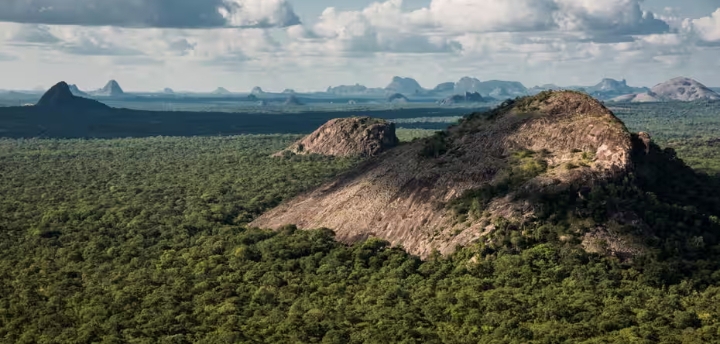Islamist militant attacks in Mozambique’s Niassa Reserve have halted conservation efforts, displaced communities, and threatened decades of wildlife protection.
Ten Killed in Brutal Attacks by ISIS-Linked Militants on Mozambique Wildlife Reserve


One of Africa’s largest protected wilderness areas, the Niassa Special Reserve in Mozambique, has been rocked by a series of violent attacks carried out by extremists linked to the Islamic State, leaving at least 10 people dead and halting decades of conservation progress.
Conservationists working in the Niassa reserve warn that years of dedicated efforts to restore populations of lions, elephants, and other vital species are now under serious threat, as operations in the region have been suspended due to the escalating violence.
On 29 April, militants launched an assault on several buildings within Niassa, resulting in the deaths of two anti-poaching scouts. Two additional scouts remain missing, and another was seriously injured. The attack—later claimed by Islamic State-Mozambique—occurred just 10 days after an earlier incident at a nearby safari camp where two people were beheaded and six soldiers killed.
As a result of the violence, a village of 2,000 residents has been displaced, and all conservation efforts in the reserve have come to a standstill. Local organisations report that the situation now threatens to undo over 20 years of progress in wildlife and environmental protection in the area.
“The worst part about these attacks—and it’s intentional—is the terror they instill,” said Colleen Begg, managing director of the Niassa Carnivore Project. “They are brutally violent. The two carpenters killed at the safari camp were beheaded. Communities are terrified by the sheer brutality of it.”
Begg added that the suspension of tourism and conservation activities could have lasting consequences. “Niassa is a unique ecosystem because of its vastness. It’s as large as Switzerland, and there are few places left in Africa like it—unfenced, home to wide-ranging animals like lions and elephants. It’s an incredibly rare wilderness. We had been working towards getting it designated a World Heritage Site. All of that is now at risk because of the insecurity.”
Spanning 4.2 million hectares (roughly 10 million acres), Niassa is one of the continent’s most critical wildlife sanctuaries. It supports populations of about 1,000 lions, 350 critically endangered African wild dogs, and rebounding numbers of elephants, buffalo, and other essential species.
Islamic State Mozambique—referred to locally as al-Shabaab, though unrelated to the Somali group of the same name—first appeared in 2017. Its expansion has displaced over 1 million people in northern Mozambique. Despite a military crackdown following the group’s assault on the city of Palma, which led to the suspension of TotalEnergies’ major gas project, the insurgents remain active in the region.
Following the recent attacks, nine conservation and safari camps have been abandoned, with at least one completely destroyed by the militants. Begg stressed the urgent need for coordinated efforts to restore peace and prevent further casualties. The Mozambican military is currently pursuing the IS-affiliated group.
“Our first priority must be restoring security and removing the insurgents from Niassa,” Begg emphasized. “Without peace, people can’t tend their fields, gather honey, or move safely. Conservationists can’t operate, and tourists certainly won’t visit. It’s catastrophic.”

 বাংলা
বাংলা  Spanish
Spanish  Arabic
Arabic  French
French  Chinese
Chinese 
